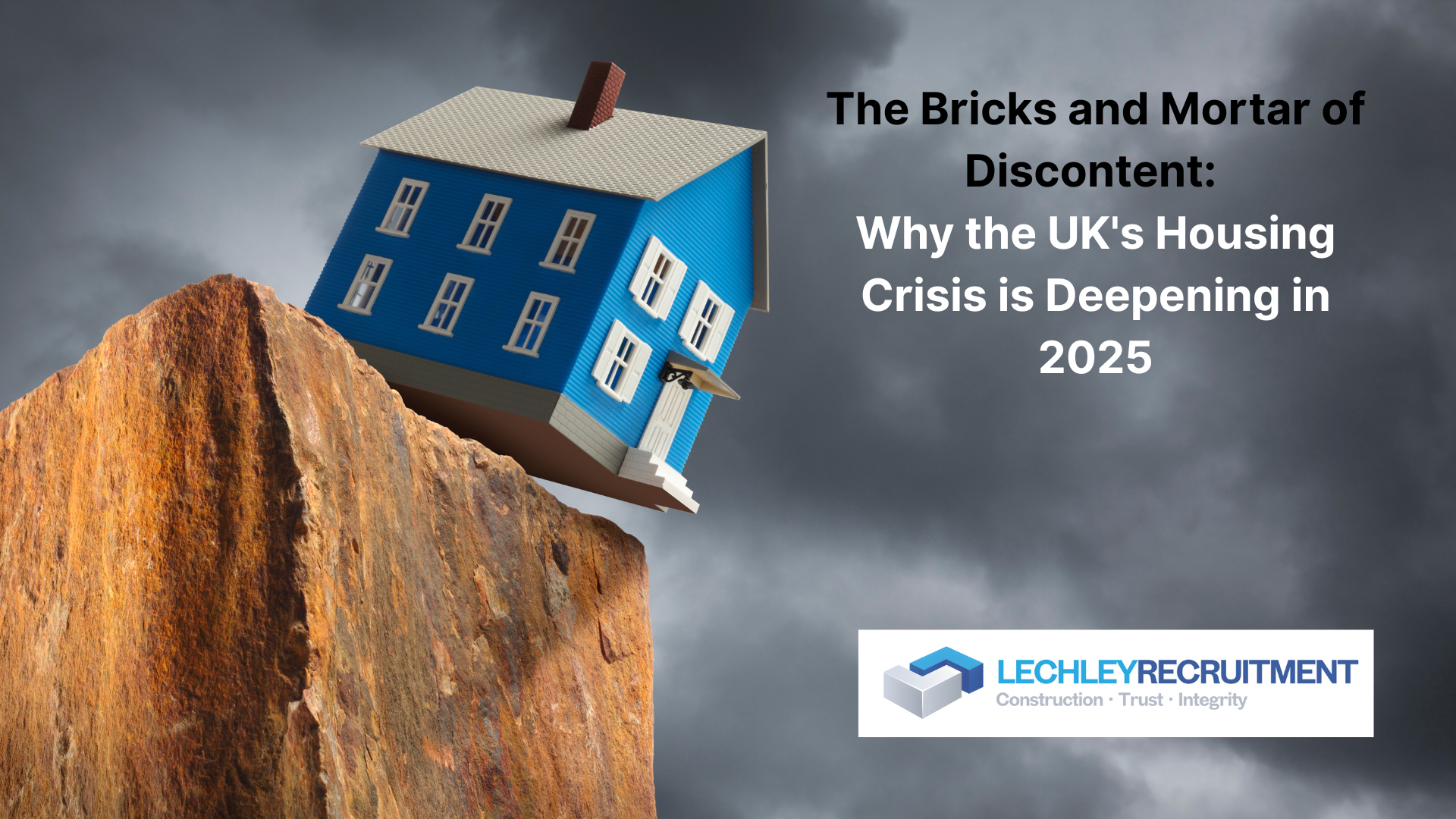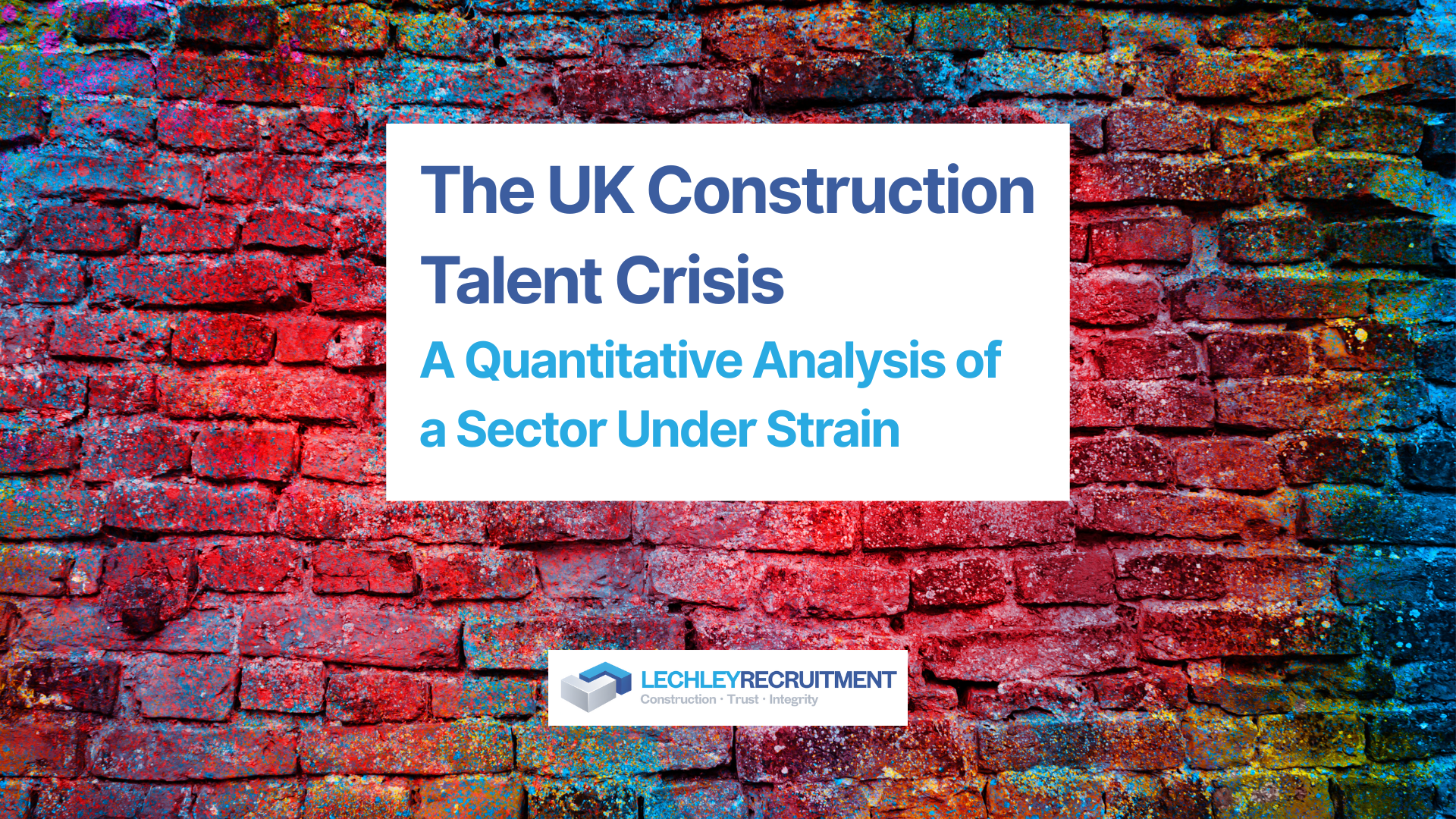The Bricks and Mortar of Discontent: Why the UK's Housing Crisis is Deepening in 2025
The Bricks and Mortar of Discontent: Why the UK's Housing Crisis is Deepening in 2025

As I drive between client meetings across the country, I can't help but notice the construction sites dotting the landscape: some bustling with activity, others eerily dormant, and many more seemingly frozen in various states of completion. These visual snapshots tell the story of Britain's housing ambitions better than any government press release. More than a year after the 2024 general election, the UK's housing crisis isn't just persisting; it's intensifying in ways that should alarm everyone in our industry.
The Labour government swept to power with that rousing pledge to "get Britain building again," promising a whopping 1.5 million new homes before the 2029 election. That's roughly 300,000 homes annually, a figure that now seems as realistic as me winning the London Marathon next spring (trust me, my running shoes are gathering dust for good reason).
The Sobering Reality Check
Let's cut through the political spin and look at what's actually happening on the ground. The numbers tell a grim story. Net additional homes delivered in 2024-25 have plummeted to around 199,300, down from 221,070 the previous year. That's not progress; that's regression at a time when we need acceleration.
Planning permissions have fallen off a cliff. Q1 2025 saw just 39,170 homes granted approval, the lowest quarterly figure since 2012 and a staggering 55% drop from Q4 2024. As someone who speaks with developers daily, I can tell you the mood has shifted from cautious optimism to outright pessimism.
The pipeline is drying up. Industry forecasts predict completions will remain below 200,000 for 2024-25, nowhere near the pace needed to hit that 1.5 million target. One developer told me last week, "We're not even planning for growth anymore, we're planning for survival."
The Planning System: Still a Bureaucratic Nightmare
Despite all the government's talk of reform, our planning system remains what it's been for decades: unpredictable, under-resourced, and painfully slow. Yes, there have been attempts to reintroduce mandatory housing targets and prioritise brownfield and "grey belt" land, but the reality on the ground is different.
Local authorities are caught between government demands and vocal local opposition. One planning officer confided to me recently: "We're being asked to approve more homes with fewer resources while managing more community backlash than ever. It's an impossible situation."
The result? Shrinking development pipelines, increased risk for developers, and costly delays that make long-term investment increasingly unattractive. One of my clients recently pulled out of a 200-home development after 18 months in planning limbo, that's 200 families who won't have the homes they need.
Economic Headwinds: The Perfect Storm
If the planning system is the first barrier, the economic environment is the second punch in this one-two knockout. As of August 2025, the Bank of England base rate sits stubbornly at 4.25%, down from its peak but still high enough to keep mortgage rates elevated.
First-time buyers are facing average two and five-year fixed rates between 4.7% and 5.2%. Only those with substantial deposits can access rates just under 4%. For perspective, I spoke with a young couple last month who had saved diligently for five years for a deposit, only to find their borrowing power had decreased by nearly 30% compared to what they could have afforded in 2021.
The consequences are predictable: property transaction volumes have slumped 28% year-on-year in April 2025. With fewer buyers able to secure finance, housebuilders are rationally slowing their delivery. As one site manager told me, "We're building to sell, not to stockpile. If the buyers aren't there, we can't justify breaking ground."
The Skills Crisis: My Daily Reality
As a construction recruiter, I'm on the front lines of perhaps the most overlooked aspect of this crisis, the widening skills gap. The Construction Industry Training Board forecasts that the UK needs more than 220,000 additional workers by 2029 to meet projected demand. That's not just ambitious; based on current trends, it's fantasy.
The industry is ageing rapidly, nearly 22% of the current workforce is over 50 and I'm seeing firsthand how difficult it is to attract young talent. Apprenticeship numbers remain woefully inadequate despite government pledges.
To build even 300,000 homes annually, we need not just more workers but different skills, particularly around modern methods of construction (MMC). Yet the transition to MMC remains painfully slow across much of the industry. One modular construction specialist told me: "The UK talks about MMC like it's the future, but in countries like Sweden and Japan, it's already the present. We're a decade behind."
The Widening Credibility Gap
The disconnect between government targets and on-the-ground reality has created a credibility crisis. At current rates, we're delivering under 200,000 net additional homes annually, far short of the 300,000 needed to hit the 1.5 million target. And a significant portion of these aren't even new builds but conversions and changes of use.
As the Home Builders Federation and leading analysts have repeatedly warned, today's low rates of planning permission virtually guarantee continued under-delivery for years to come. It's simple mathematics, you can't build what you don't have permission for.
Let's not forget the infrastructure challenge. New communities need schools, GP surgeries, transport links, and utilities, all facing similar funding, planning, and workforce constraints. One local councillor put it bluntly: "We're being asked to approve hundreds of new homes with no additional infrastructure funding. It's like asking us to commit political suicide."
A Personal Perspective: What Needs to Change
After 20 years in construction recruitment, I've never seen such a perfect storm of challenges. The housing crisis isn't just about numbers; it's about people. It's about the site manager who can't afford to live near where he builds homes. It's about the apprentice carpenter who can't find a rental property on her wages. It's about the growing disconnect between those who build Britain and those who can afford to live in it.
The solution requires more than targets; it demands a coordinated, three-pronged strategy. First, we need radical planning reform: a faster, more certain, and better-resourced planning system. This means proper funding for local authority planning departments, streamlined processes for appropriate developments, and genuine community engagement rather than tick-box exercises.
Second, we need stable economic conditions. Government must work with the Bank of England to tackle inflation and improve credit affordability. Without this, developers can't confidently invest, and buyers can't confidently purchase.
Third, we need a Marshall Plan for skills: massive investment in construction apprenticeships, upskilling programmes, and modern methods of construction. This isn't just about filling today's vacancies; it's about building a workforce fit for the future.
The Human Cost of Inaction
Behind every statistic is a human story. Last month, I spoke with Sarah, a project manager with 12 years of experience. Despite earning above the national average, she and her partner, a quantity surveyor, can't afford to buy in the area where they work. They're considering leaving the industry altogether.
Then there's Mohammed, a brilliant young site engineer who's living with his parents at 29 because rental costs would consume over 60% of his take-home pay. And there's James, a small developer who's had to let go of three staff because planning delays have tied up all his capital in land that he can't yet build on.
These are the real faces of the housing crisis, not just statistics on a government dashboard.
Conclusion: Time for Honest Conversations
The UK's housing crisis is deepening not because we lack ambition, but because we lack execution. Targets without fundamental reform of planning, economic and skills systems will remain a mirage, tantalising but forever out of reach.
As someone who connects people with the industry every day, I believe we need honest conversations about what's really happening and what's really needed. The promise of new homes isn't just about shelter; it's the foundation of economic productivity, social mobility, and future prosperity.
Building that future requires more than ambitious goals and political soundbites. It demands a credible, joined-up plan and the collective will to deliver it. Until then, I'll continue to drive past those half-finished sites, wondering when Britain will finally bridge the gap between housing promises and housing delivery.
What's your experience with the current housing market? Whether you're a developer struggling with planning delays, a contractor facing skills shortages, or a construction professional considering your career options, I'd love to hear your perspective.
The challenges outlined above aren't just statistics; they're the daily reality for thousands of people in our industry. If you're looking for new opportunities or need help finding the right talent to navigate these turbulent times, let's have a conversation.
Drop me a message or comment below with your thoughts. Are you seeing similar patterns in your area? What solutions do you think could make a real difference?
Building Britain's future starts with honest conversations about where we are today.
UKHousingCrisis #ConstructionRecruitment #PlanningReform





